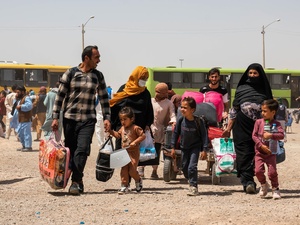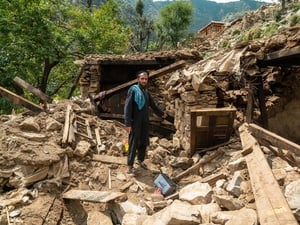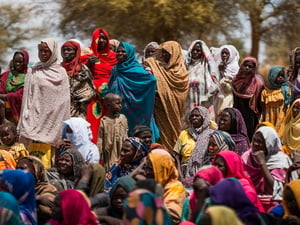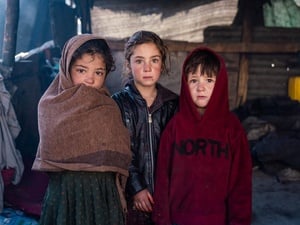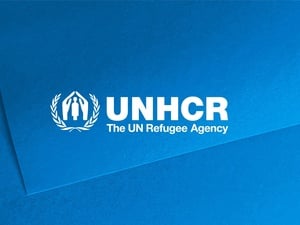Afghanistan Humanitarian Update No. 13
Afghanistan Humanitarian Update No. 13
At a Glance:
- Aid workers set up camps in race against time
- More tents, other supplies on the way
- Forum on Afghan refugees and displaced to meet in Geneva
- Second airlift for Iran
- UNHCR receives $26 million in cash for Afghan emergency
Aid workers set up camps in race against time
While other UN agencies try to bring aid into Afghanistan, security permitting, UNHCR and is partners are using the period of relative calm to gear up for a possible exodus of large numbers of Afghans into neighbouring countries. Tens of thousands of refugees have trickled into Pakistan through the country's officially closed but porous border since September 11. No new arrivals have been reported in Iran. But aid workers say the fact that relatively few refugees have arrived to date is no reason for complacency. They warn that the situation could change dramatically if action is taken in Afghanistan.
Aid workers are trying to overcome various logistical and infrastructure problems trying to set up refugee camps in Pakistan's remote tribal areas in a veritable race against time. In the North-West Frontier Province, some 28 sites have so far been identified. Site preparation began this morning at the Malkano site, some 20 kms from Peshawar in the Khyber tribal area. The remote site should be ready to receive new arrivals in 10 days.
Today (Thursday), tractors and other vehicles began to prepare the access road so that heavier earthmoving equipment can be sent in over coming days. The Danish Committee for Afghan Refugees will undertake water rehabilitation at Malkano. Médecins Sans Frontières is dealing with health issues and Afghan Construction and Logistic Unit will oversee overall site preparation. Over the next few days, work will start at three other viable sites in North-West Frontier Province.
Work on new refugee camps also continues in Pakistan's arid south-western Baluchistan Province. UNHCR and its partner agencies Oxfam and Mercy Corps International are working at two campsites, trying to rehabilitate wells and crumbling water systems. Water is a major challenge in the arid area, where a possible arrival of large numbers of refugees could create a serious shortage of water, affecting both refugees and the local population. In some areas where well drilling is not feasible, UNHCR will have to resort to water tankering - a costly and time-consuming venture.
Tents, other aid on the way
UNHCR so far has managed to stock more than 8,000 tents in Pakistan, but at least 12,000 more are needed to accommodate an initial goal of 100,000 people. An estimated 73,000 tents for up to 400,000 people are expected to be delivered by November 25th. While tents are probably the most vital of the relief supplies except for water, many other relief goods are being flown into Pakistan, including blankets, sleeping mats, stoves, kitchen sets and plastic sheeting.
While every effort is being made to pre-position as much shelter material in Pakistan and Iran as possible, aid workers fear that a rapid, large-scale exodus from Afghanistan could overwhelm the countries' current reception capacity.
Afghan displacement forum
An international forum on Afghan refugees and displaced populations begins in Geneva on Friday. Co-chaired by High Commissioner Ruud Lubbers and UN Under Secretary-General for Humanitarian Affairs Kenzo Oshima, the forum will bring together key donor and asylum governments and aid agencies to discuss both the immediate humanitarian crisis and future strategies for managing Afghan refugee and population displacement. It will be held at Geneva's Palais des Nations UN headquarters beginning Friday afternoon and concluding at midday on Saturday.
Second airlift for Iran
A Boeing 747 cargo plane with 86 metric tons of tents and 16 tons of plastic sheeting donated by the United Kingdom is expected to take-off for Mashad, Iran, later on Thursday. This will be the second aircraft arriving in Iran and the fourth for UNHCR sent to the region in a week.
Funding
UNHCR has now received more than US $26 million in direct donations from a number of governments. Most of the money has already been spent on emergency supplies or obligated. Pledges have also been made for an additional $10 million. UNHCR has also received $2.2 million in in-kind donations from Japan, the United Kingdom and China. The agency has been seeking an immediate infusion of $30 million to handle the possible exodus of the first 400,000 refugees into Pakistan and Iran. UNHCR's longer-term contingency plan envisages a worst-case scenario under which the agency would have to provide help to nearly 2 million people - outside and inside Afghanistan - at an estimated cost of $268 million dollars.


